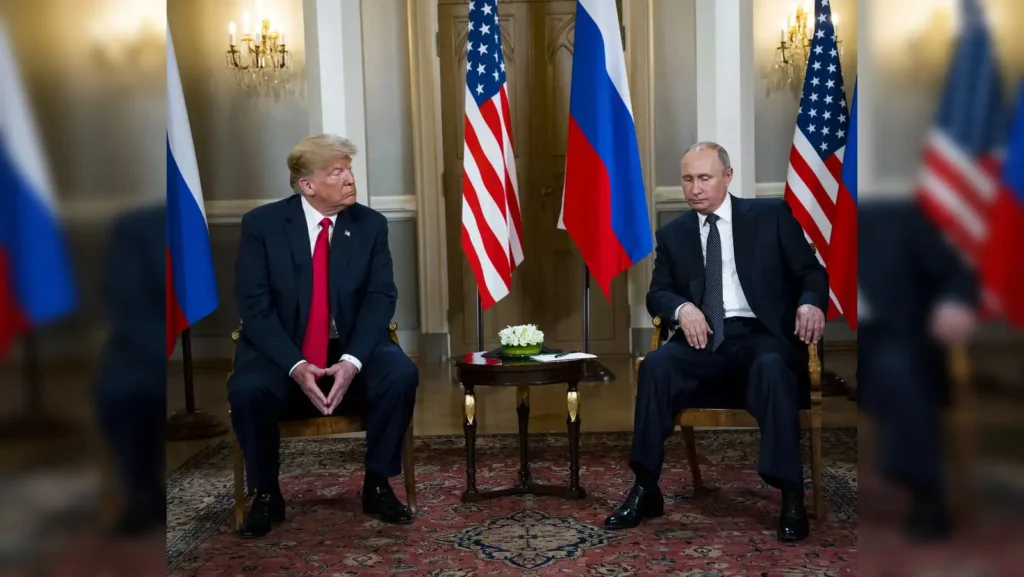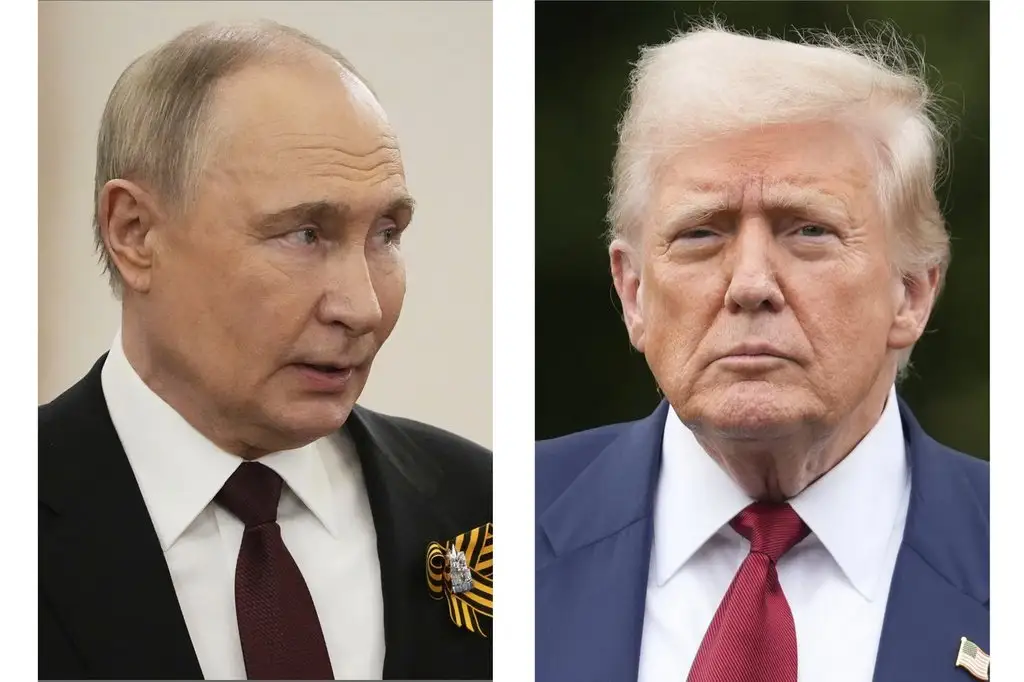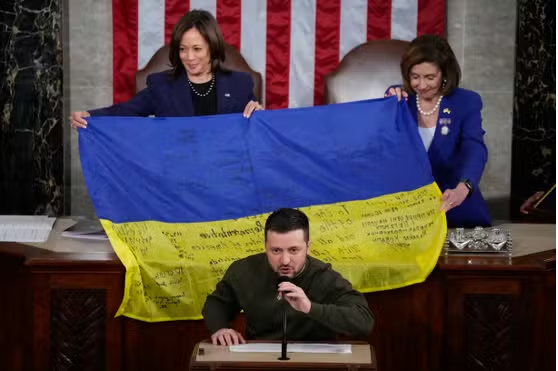
- President Donald Trump announced that he will welcome Russian President Vladimir Putin in Alaska next week for what he calls a “historic meeting” focused on concluding the war in Ukraine. Set for August 15, 2025, the event will signify the most significant U.S.-Russia interaction in years—and the first instance a Russian leader has been formally welcomed on American ground since the war commenced.
What makes Alaska appealing?
Alaska was chosen for both functional and emblematic reasons.
- . Only 55 miles separate the U.S. state from Russia across the Bering Strait, establishing it as a geographically appropriate midpoint between the two nations. Trump highlighted Alaska’s “strategic position” and historic importance, pointing out that it was formerly Russian land before being purchased by the United States in 1867.
- The site provides a legal benefit for the Kremlin leader: since the U.S. is not part of the International Criminal Court, Putin can participate without worry of an arrest warrant being carried out.

Agenda: Resolving the Ukraine Crisis
- The White House indicates that the main objective of the summit is to reach a ceasefire and examine “land and security arrangements” that might lead to lasting peace. Trump suggested possible territorial compromises, mentioning there could be “swaps and adjustments” advantageous for “both parties.”
Nonetheless, this strategy has faced significant backlash from Ukraine and numerous European partners.
- Ukrainian President Volodymyr Zelenskyy stated that “no foreign leader has the authority to negotiate Ukraine’s sovereignty” and that any deal made without Kyiv’s involvement would be “invalid from the beginning.”
Trump’s Political Risk
- By excluding Ukraine from direct discussions with Russia, Trump is deviating from the traditional U.S. and NATO’s position that Ukraine must play a crucial role in all peace talks.
- Critics contend that engaging with Putin without representatives from Ukraine diminishes Kyiv’s legitimacy and potentially rewards Russia for its military aggression to capture land.
- Supporters, however, characterize the action as a daring attempt to conclude a relentless conflict that has ravaged Ukraine, strained worldwide supply chains, and sparked an ongoing energy crisis.
Diplomatic Considerations
- For Moscow, the summit offers an opportunity to assert legitimacy and alleviate the diplomatic isolation caused by Western sanctions. For Trump, it presents a chance to establish himself as an international dealmaker—an identity he developed in his initial term through prominent engagements with North Korea’s Kim Jong Un and other contentious figures.
Analysts note that Putin’s choice to engage with the U.S.
- soil is a strategic risk, indicating he thinks Trump could be more receptive to compromises than European leaders or past U.S. administrations.
Responses Worldwide
- Leaders in Europe are divided. Some discreetly embrace any chance for conversation, worried the conflict might prolong endlessly. Some, especially in Eastern Europe, worry that Trump’s openness to talk about “territorial swaps” might establish a risky precedent for upcoming conflicts.
- China has thus far maintained a public stance of neutrality, but analysts indicate that Beijing will be attentively monitoring the meeting, considering its own territorial conflicts and relationship with Moscow.

What May Occur Subsequently
- Although both leaders have shown hope, the summit holds significant unpredictability. Previous prominent encounters between U.S. and Russian leaders have occasionally concluded with little beyond symbolic actions. Nonetheless, Trump asserts that this time it will be unique, stating, “We’re aiming to create history in Alaska.” “It’s time to end the violence.”
However, without the direct participation of Ukraine, any accord may face challenges in being enforceable in practice. Even if a truce is declared, putting it into action might be significantly more difficult than agreeing to it.
A Pivotal Occasion
- Regardless of being viewed as bold diplomacy or impulsive decision-making, the Trump-Putin summit in Alaska will mark a pivotal moment in U.S. foreign policy this year. It will evaluate Trump’s capacity to handle intricate international discussions and might redefine America’s position in the Ukraine crisis—either as a genuine mediator for peace or as a nation ready to sidestep allies for swift resolutions


